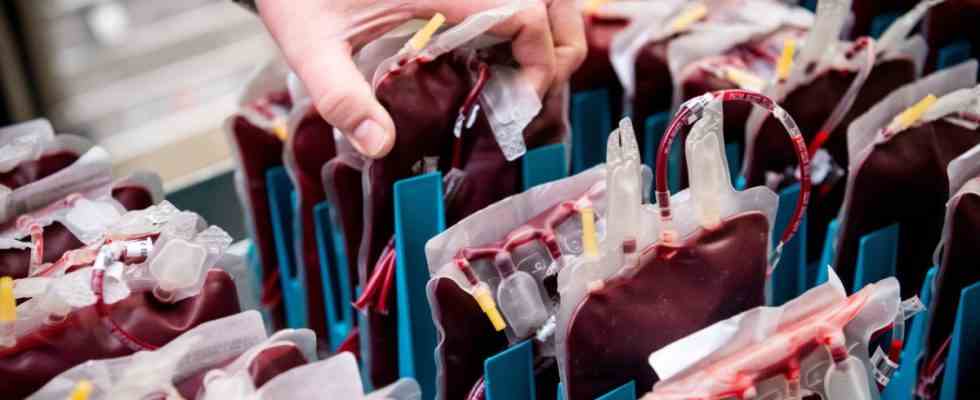So far, a guideline stipulated that men who have sex with other men had to observe certain waiting times. This should minimize the risk of HIV infection. Critics saw this as discrimination.
Bisexual and homosexual men may no longer be excluded from donating blood across the board. With the votes of the traffic light coalition, the Bundestag decided to amend the transfusion law accordingly. It is now expressly stated there that sexual orientation must not be taken into account when deciding on a possible exclusion.
So far saw one guidelines of the German Medical Associationthat men who have sex with men be deferred for four months after having sex with a new or more than one partner. This is to reduce the risk of passing on a possible HIV infection.
The traffic light parties had already agreed in their coalition agreement to end this practice. “There is no scientific reason for this discrimination,” said SPD MP Heike Engelhardt. “It’s a shame that people in 2023 are still struggling with such disadvantages and prejudices.” Proponents of the previous regulation saw things a little differently with the missing scientific reason. They referred, among other things, to figures from the Robert Koch Institute. According to this, of the 1,800 new HIV infections per year, about 1,000 affect men who have sex with men.
Even under the new regulation, a provision remains possible because of the “individual sexual behavior of the person willing to donate” as part of a risk assessment. In plain language, this means that, regardless of gender or sexual orientation, someone who has recently had unprotected sex, for example, can be put on the waiting list for security reasons. This should make it easier to prove a conceivable HIV infection in the laboratory – because it can take four months for this to be possible after infection.
With the change in the law, the previous maximum age limits for donating blood will also be abolished. Until now, first-time donors – depending on the region – were only allowed to be around 65 years old. For repeat donors, the upper limit was mostly between 70 and 75 years. In the future, a doctor will instead assess the individual’s suitability to donate.

